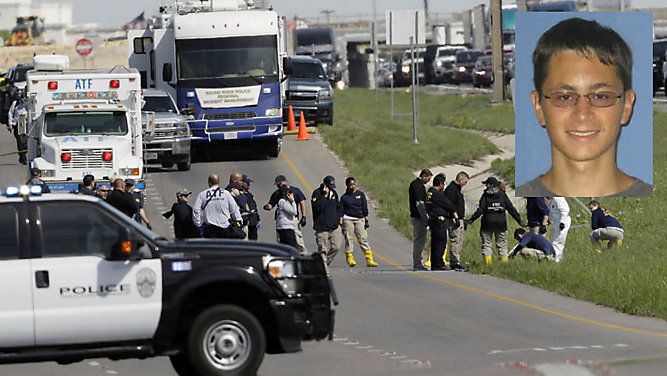NATIONWIDE — Across the nation, criticism of the language used by police and media in the wake of the Austin bombings is rampant.
A lingering question is, "Why isn't the man behind the attacks being labeled as a terrorist?"
COMPLETE COVERAGE: Austin Bombings
“What I can tell you having listened to that recording, he does not at all mention anything about terrorism nor does he mention anything about hate,” said Brian Manley, the Austin police chief, on Wednesday. “It is the outcry of a very challenged young man talking about challenges in his personal life that led him to this point," leaving many dumbfounded.
Angered, a popular opinion is that law enforcement/the media is painting Conditt as a troubled young man who lost his way, positioning him as an empathetic figure.
“If I describe this as an act of a person who has suffered, it orients the listener differently than if I say it’s the act of a terrorist or a madman,” Eddie S. Glaude, the chair of the center for African-American studies at Princeton, told the New York Times. “The language we use carries a moral and ethical weight. It mobilizes passions. And it can cut short or activate empathy.”
The Patriot Act defines domestic terrorism as causing harm in order to intimidate a population or influence a government.
While the FBI defines domestic terrorism as "perpetrated by individuals and/or groups inspired by or associated with primarily U.S.-based movements that espouse extremist ideologies of a political, religious, social, racial, or environmental nature."
The debate over how the government, media and public define terrorism often brings up sensitive issues around race and religion.
While Conditt's actions provoked fear throughout the community, police haven't discovered an actual motive.
Dr. John Huber, a forensic psychologist, said, in the strictest sense, Conditt falls into the category, but says the man also shared aspects you'd find in a serial killer case.
"When you have religious ideation, when you do this you're going to get rewarded in the afterlife, or you're tired of the political environment, and the only way to do it is to try and get rid and force the people who have control over our society to make changes, and then society jumps on the bandwagon with you,” Huber said. “'We've got to change or people will keep doing this.' But in this situation, you're not trying to change anybody else, you're getting intrinsically or internally rewarded for this terror you're creating.”
WATCH DR. HUBER’S FULL INTERVIEW BELOW:









